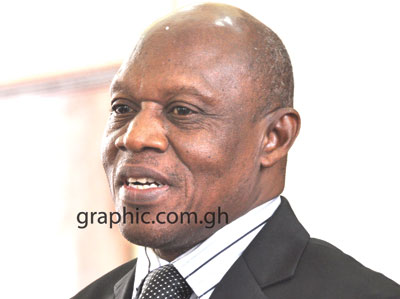Exercise restraint in coverage of petition
 A traditional ruler has advised media practitioners to exercise the greatest restraint and circumspection in the coverage of the ongoing election petition before the Supreme Court.
A traditional ruler has advised media practitioners to exercise the greatest restraint and circumspection in the coverage of the ongoing election petition before the Supreme Court.
In his opinion, the media must cover the proceedings devoid of tension which could bring the country into disrepute.
Nana Owusu-Ababio, the Benkumhene of Mensen in the Dormaa-Ahenkro Traditional Area in the Brong-Ahafo Region, who is also a resident of Kumasi, was speaking to the Daily Graphic on Thursday.
He said it was the writings, the utterances and sarcastic comments of the media that brought about many deaths in Rwanda.
Nana Benkumhene said by his estimation, many people had decided not to listen to some radio and television stations whose anchor and panel members only alarmed and divided the people instead of bringing them together.
He said some comments made by some of the media houses, especially some of the FM stations in Kumasi, for instance, and some panellists on television stations portrayed themselves as judges and, therefore, the final arbiters of the case.
Nana Owusu-Ababio observed that sometimes some members of the panel after the court proceedings had been adjourned, went to the extent of telling ‘a whole Supreme Court Judge’ what he or she should have done, a situation he said could aggravate tension and confusion and invariably cause disaffection and intolerance among the people.
He said these FM stations also allowed serial callers and other people to call and sometimes castigate judges, as well as the lawyers of the respondents and the petitioners.
Nana Owusu-Ababio appealed to the judges of the Supreme Court to haul some of these radio presenters and panellists before the court for explanation.
This, he believed, would go a long way to deter those electronic and print media houses from commenting on the election petition carelessly and recklessly with their own interpretations.
A situation, he stressed, when left unchecked, could spell doom for mother Ghana and the country’s bid to deepen democratic culture.
Story: Nana Yaw Barimah
